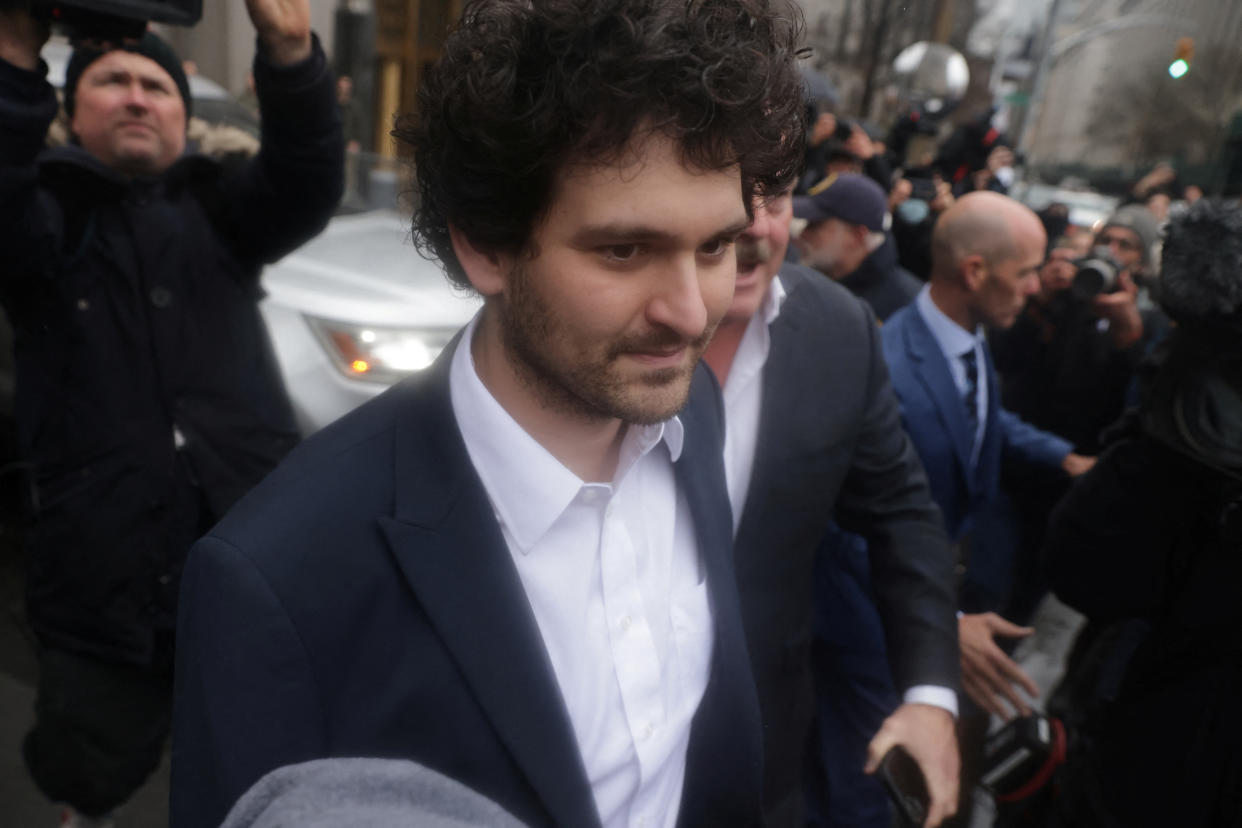Former Stanford Law School dean co-signed bail bond for FTX's Bankman-Fried
The names of the wealthy backers who guaranteed indicted FTX co-founder Sam Bankman-Fried's $250 million bail bond were finally revealed Wednesday.
Former Stanford Law School dean Larry Kramer and Stanford University research scientist Andreas Paepcke helped make it possible for the former CEO to remain out of federal custody as he awaits trial, unsealed court documents reveal.
The court filings were made public by Manhattan U.S. District Court Judge Lewis Kaplan, who is presiding over the embattled entrepreneur's criminal fraud case. Bankman-Fried's previously objected to disclosing the names.
Kramer and Paepke each co-signed Bankman-Fried's unsecured personal recognizance bonds, with Kramer pledging property worth $500,000 and Paepke pledging property worth $200,000.
Typically, a defendant must pledge assets equal to around 10% of the bond amount. In Bankman-Fried’s case, his bond was set at $250 million — one of the largest bail figures in history — meaning he could be expected to pledge assets totaling around $25 million.
Before the details of the bail arrangement were made public, court documents showed that Bankman-Fried's bond was secured in part by a San Francisco Bay Area home valued around $4 million and owned by the defendent's parents, as well as two to four individuals of “considerable means.”

Bankman-Fried's father, Joseph Bankman, has been employed as a professor at Stanford Law School since 1988. He is also a clinical psychologist who teaches courses in mental health law. His mother, Barbara Fried, also served as a Stanford Law professor before retiring in September. According to The Wall Street Journal, Joseph Bankman also spent 11 months serving as a paid employee of FTX for 11 months. The Journal's report states that he was focused on FTX's charity efforts.
The request to unseal the names came from a group of news organizations that asked to intervene in the case for the limited purpose of disclosure. They argued that the public had a right to know the identities of individuals who backed Bankman-Fried's release.
On February 7, Bankman-Fried's lawyers filed court documents indicating a plan to appeal U.S. District Court Judge Lewis Kaplan's January 30 decision to unseal the names. The lawyers asked that the matter instead be decided by the Second Circuit Court of Appeals.
Judge Kaplan then paused his previous order to release the names, until 5 p.m. on February 14, so the issue could be officially appealed and so that any adversely affected party could request a stay from the Second Circuit. No applications for an additional stay were made to the Court of Appeals.
His ruling, Kaplan said in earlier court documents, was based on his expectation that the guarantors, known as bail sureties, were less likely to face the same level of scrutiny and harassment that Bankman-Fried's parents allegedly received. Kaplan also noted that the names of guarantors are typically made public as part of the court record.
In December, the U.S. Justice Department charged Bankman-Fried with multiple felonies, including wire fraud, securities and commodities fraud, money laundering, and campaign finance violations, claiming he illegally used FTX customer and investor funds.
Convictions on all eight of Bankman-Fried’s charges together carry up to 115 years in prison.
Separately, the U.S. Securities and Exchange Commission and the Commodities Futures Trading Commission filed civil suits against the former crypto mogul, FTX.com, and Alameda Research.
The right to bail is governed by the U.S. Constitution’s 8th Amendment, which prohibits excessive bail. In setting bail conditions, a judge is tasked with ensuring public safety and that the defendant will show up in court to face charges.
To guard against a defendant’s flight risk, a judge can impose financial and other consequences that trigger if a defendant flees prosecution. In Bankman-Fried’s case, the judge also required that the former billionaire remain on home confinement with limited local travel, wear an ankle monitor, surrender his passport, and refrain from financial transactions exceeding $1,000.
This story was amended to reflect that Andreas Paepcke pledged property worth $200,000.
Alexis Keenan is a legal reporter for Yahoo Finance. Follow Alexis on Twitter @alexiskweed.
Follow Yahoo Finance on Twitter, Facebook, Instagram, Flipboard, LinkedIn, and YouTube
Find live stock market quotes and the latest business and finance news
